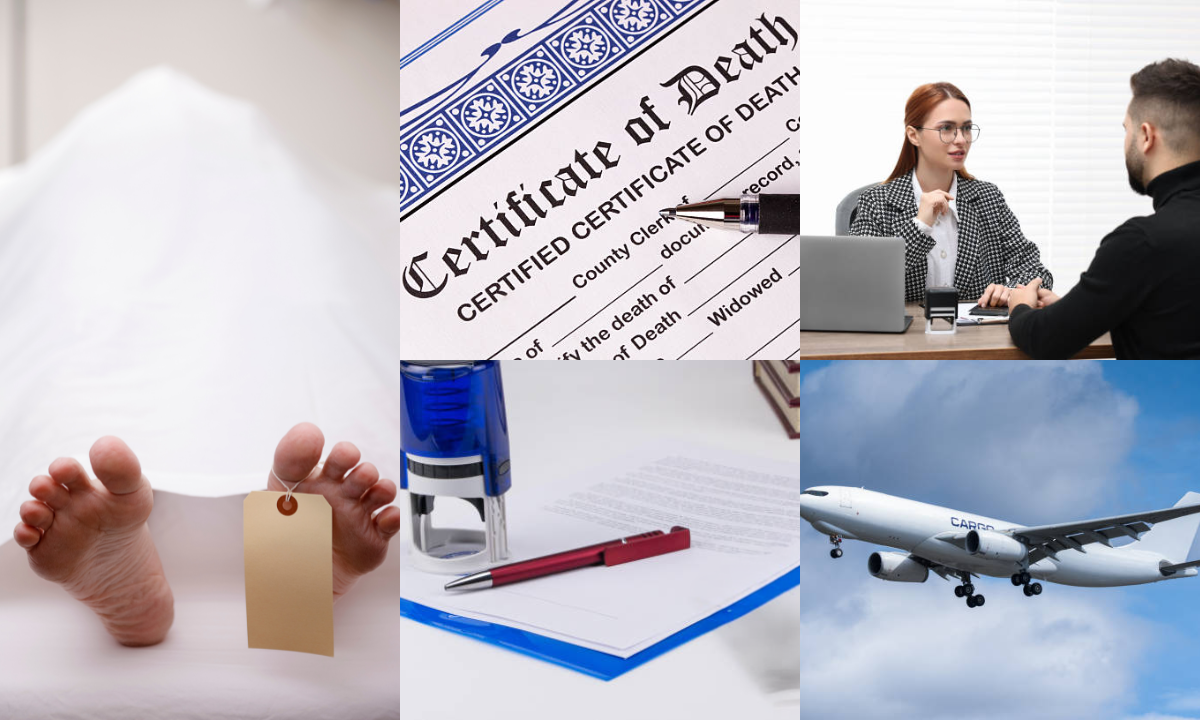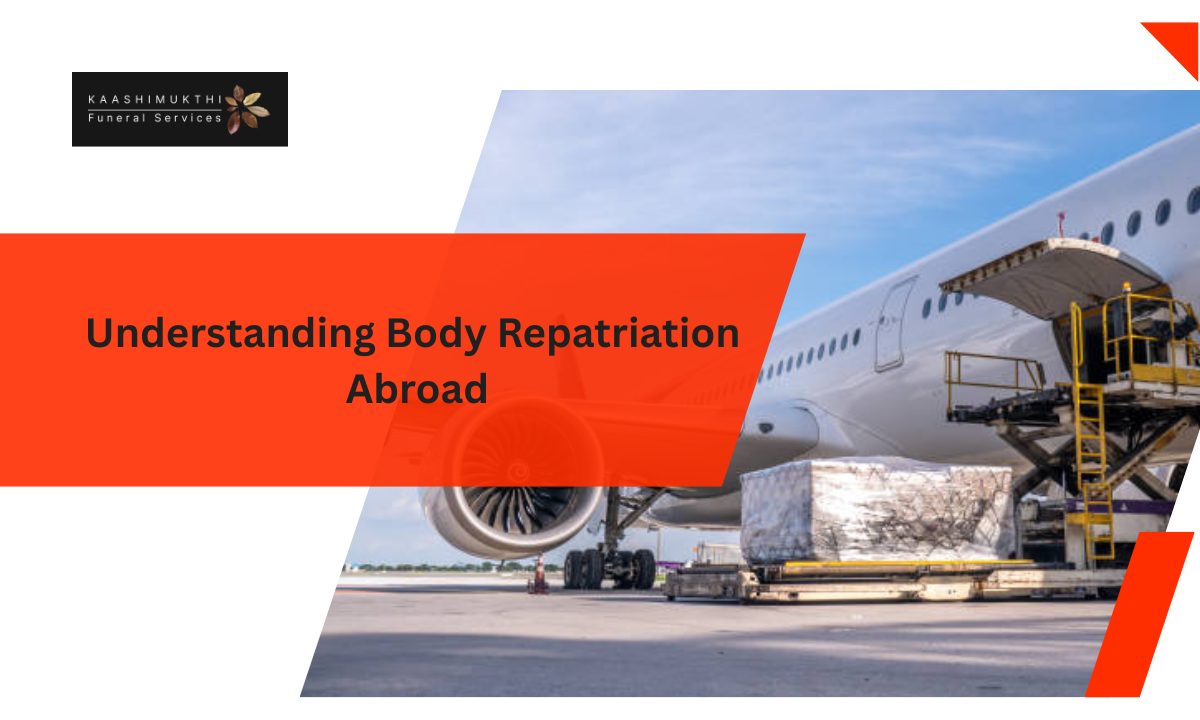Repatriation of Bodies is a deeply sensitive process that ensures a loved one who passed away abroad can be brought back home for their final rites. In simple terms, body repatriation refers to the lawful and respectful transfer of a deceased person’s remains from one country to another.
When a death occurs away from home, whether due to work, travel, or studies, families face emotional distress and confusion about how to start the process. That’s where professional Dead body transportation services become vital; they manage the paperwork, permissions, and logistics involved in this delicate journey.
Understanding the repatriation process helps families prepare better and find peace in knowing their loved one will be brought home safely.
Let’s explore how it’s done, step-by-step, and what documents and procedures are essential for a smooth transition.
What Is Repatriation of a Body?
Repatriation of a body means returning the remains of a deceased person from a foreign country to their homeland. It involves coordination between consulates, airlines, funeral directors, and health authorities across both countries.
The process ensures that all legal, health, and transportation requirements are met so the body reaches its destination with respect and care. Families often choose repatriation so that funeral rituals, cultural traditions, and final goodbyes can happen in the deceased’s native land, surrounded by loved ones.
How Are Bodies Repatriated?

Families often ask us, “How are bodies repatriated?”
The process requires both compassion and careful handling. From embalming and documentation to coordination with airlines, every stage must comply with international regulations.
Here’s a simplified breakdown of the process:
| Step | Procedure |
|---|---|
| 1. Death Certificate | Issued by the local authority. Then it has to be attested by the Ministry of External Affairs. |
| 2. Police Clearance | Required in the case of sudden deaths, confirming that there are no legal restrictions for transporting the body. |
| 3. Embalming the Body | The body is preserved to prevent decomposition during international travel. |
| 4. Coffin Sealing | The coffin is hermetically sealed after inspection by health officials. |
| 5. Consular Certificate | Issued by the embassy or consulate authorizing the repatriation. |
| 6. Booking Air Cargo | Airlines handle the coffin as special cargo, following strict safety guidelines. |
This process can seem overwhelming, but with the right assistance, families can manage it smoothly and respectfully.
Documents Required for Repatriation
One of the most crucial aspects of the repatriation of bodies is documentation. Without proper papers, international transport is not permitted.
Below are the key documents required for repatriation:
- Original Death Certificate from the country of death
- Embalming Certificate confirming the preservation of the body
- Coffin Sealing Certificate by a medical or health authority
- Passport of the Deceased (to be cancelled by the embassy)
- Photo ID Proofs of the deceased and next of kin
- Consular or Embassy NOC permitting transport
- Airline Booking Details for cargo shipment
Having these ready ensures there are no delays and the body can be transported as quickly as possible.
Why Embalming the Body Is Essential
When a body needs to travel internationally, embalming the body becomes a mandatory step. It involves preserving the body using safe chemicals to prevent decomposition, maintain hygiene, and comply with airline regulations.
Without embalming, airlines do not accept human remains for international flights. This process ensures the body arrives home respectfully and intact.
Role of Dead Body Transportation Services
Coordinating international paperwork, dealing with multiple authorities, and arranging air transport can be extremely challenging for families. This is why our dead body transportation services play such a vital role. We handle every aspect of the repatriation, from embalming and documentation to cargo coordination and local transfers at both ends.
Professionals ensure that all embassy requirements are fulfilled and that the journey is smooth, lawful, and timely. Our experience reduces stress for the grieving family, allowing them to focus on their emotional healing and cultural rituals instead of the formalities.
Tips for Families Managing Repatriation
We understand that families may feel overwhelmed during such times. Here are some practical tips to make the process smoother and less stressful:
- Contact the Indian Embassy or Consulate immediately. They provide guidance and connect you with local authorities.
- Engage a professional repatriation service early. They handle documentation and coordination efficiently.
- Keep multiple copies of all documents. Embassies and airlines often require duplicates.
- Check airline guidelines beforehand. Each airline may have slightly different coffin handling rules.
- Ensure embalming and sealing are done by authorized professionals. This avoids rejection or delays during inspection.
Challenges Families May Face During Repatriation
Despite best efforts, families can face certain difficulties during the repatriation of a deceased body abroad.
Common issues include:
- Delays in obtaining embassy or consular approvals
- Language barriers with local officials
- Airline cargo slot unavailability
- Time zone differences affecting coordination
- Emotional stress and lack of clear guidance
Having a professional service provider by your side helps avoid such challenges, ensuring everything runs smoothly and respectfully.
Final Thoughts
The repatriation of bodies is not just a logistical process; it’s a journey of love, care, and duty toward the departed.
Each step, from embalming to documentation, plays a crucial role in ensuring dignity and respect throughout the journey home.
With the right guidance, families can navigate international procedures without confusion or distress. Our trusted Dead body transportation services make this possible, handling every aspect with professionalism and compassion.
At Kaashimukthi, we understand how emotionally difficult these moments are. Our team works tirelessly to ensure that your loved one’s final journey home is carried out with sensitivity, respect, and complete care.
Frequently Asked Questions
1. What does body repatriation mean?
It refers to the legal and respectful process of returning a deceased person’s remains from a foreign country to their home country for funeral rites and final ceremonies.
2. How are bodies repatriated internationally?
Bodies are embalmed, sealed in approved coffins, and transported via air cargo with necessary embassy and health clearances, ensuring safety and international compliance.
3. Which documents are required for repatriation?
You need a death certificate, embalming and sealing certificates, a passport of the deceased, consular permissions, and airline booking documents.
4. Is embalming mandatory for international repatriation?
Yes. Embalming preserves the body and ensures airlines accept it for transport, meeting hygiene and preservation standards during long international flights.
5. Who helps with the repatriation process?
Professional Dead body transportation services assist with documentation, embalming, coffin sealing, airline coordination, and consular permissions, ensuring the process is handled respectfully and efficiently.

Madhu is an Entrepreneur, a Mentor, a Writer and an Aspiring Car Race Driver. He is Deeply passionate about leveraging Technology and Human Centred Design to make complex care and End of Life Planning easier. With the ultimate aim of Improving the quality of Life in the Twilight years. Madhu is highly educated and Alumni of IIM-Bangalore, Sikkim Manipal University and Bangalore University besides a Rich Industry Experience in the field of Product Management, Design, Supply chain, Finance, Commercial Management and Funeral Services.

